
Gregory Blaxland was an English pioneer farmer and explorer in Australia, noted especially for initiating and co-leading the first successful crossing of the Blue Mountains by European settlers.

Herbert W. Greenfield was a Canadian politician and farmer who served as the fourth premier of Alberta from 1921 until 1925. Born in Winchester, Hampshire, in England, he immigrated to Canada in his late twenties, settling first in Ontario and then in Alberta, where he farmed. He soon became involved in the United Farmers of Alberta (UFA), a farmers' lobby organization that was in the process of becoming a political party, and was elected as the organization's vice president. Greenfield did not run in the 1921 provincial election, the first provincial general election in which the UFA fielded candidates, but when the UFA won a majority in the Legislature in that election he was chosen by the UFA caucus to serve as Premier. Like most of the UFA caucus, Greenfield had no experience in government and he struggled in the position.
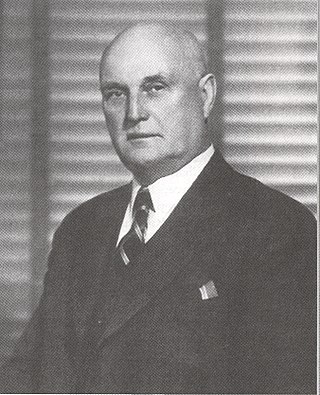
Charles Stewart, was a Canadian politician who served as the third premier of Alberta from 1917 until 1921. Born in Strabane, Ontario, in then Wentworth County, Stewart was a farmer who moved west to Alberta after his farm was destroyed by a storm. There he became active in politics and was elected to the Legislative Assembly of Alberta in the 1909 election. He served as Minister of Public Works and Minister of Municipal Affairs—the first person to hold the latter position in Alberta—in the government of Arthur Sifton. When Sifton left provincial politics in 1917 to join the federal cabinet, Stewart was named his replacement.
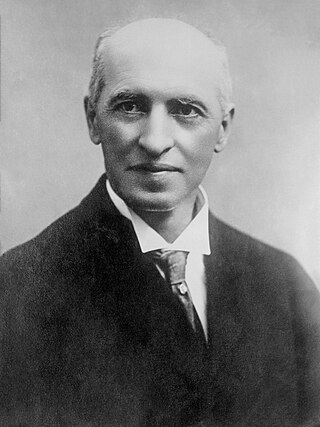
Arthur Lewis Watkins Sifton, was a Canadian lawyer, judge and politician who served as the second premier of Alberta from 1910 until 1917. He became a minister in the federal cabinet of Canada thereafter. Born in Canada West, he grew up there and in Winnipeg, where he became a lawyer. He subsequently practised law with his brother Clifford Sifton in Brandon, where he was also active in municipal politics. He moved west to Prince Albert in 1885 and to Calgary in 1889. There, he was elected to the 4th and 5th North-West Legislative Assemblies; he served as a minister in the government of premier Frederick Haultain. In 1903, the federal government, at the instigation of his brother, made Sifton the Chief Justice of the Northwest Territories. After Alberta was created out of a portion of the Northwest Territories in 1905, Sifton became the first Chief Justice of Alberta in 1907 and served until 1910.

Deere & Company, doing business as John Deere, is an American corporation that manufactures agricultural machinery, heavy equipment, forestry machinery, diesel engines, drivetrains used in heavy equipment and lawn care equipment. It also provides financial services and other related activities.
Agribusiness is the industry, enterprises, and the field of study of value chains in agriculture and in the bio-economy, in which case it is also called bio-business or bio-enterprise. The primary goal of agribusiness is to maximize profit while satisfying the needs of consumers for products related to natural resources such as biotechnology, farms, food, forestry, fisheries, fuel, and fiber.

A smallholding or smallholder is a small farm operating under a small-scale agriculture model. Definitions vary widely for what constitutes a smallholder or small-scale farm, including factors such as size, food production technique or technology, involvement of family in labor and economic impact. There are an estimated 500 million smallholder farms in developing countries of the world alone, supporting almost two billion people. Smallholdings are usually farms supporting a single family with a mixture of cash crops and subsistence farming. As a country becomes more affluent, smallholdings may not be self-sufficient. Still, they may be valued for providing supplemental sustenance, recreation, and general rural lifestyle appreciation. As the sustainable food and local food movements grow in affluent countries, some of these smallholdings are gaining increased economic viability in the developed world as well.

Canada is one of the largest agricultural producers and exporters in the world. As with other developed nations, the proportion of the population agriculture employed and agricultural GDP as a percentage of the national GDP fell dramatically over the 20th century, but it remains an important element of the Canadian economy. A wide range of agriculture is practised in Canada from Newfoundland on the Atlantic to British Columbia on the Pacific. In the federal government, overview of Canadian agriculture is the responsibility of the Department of Agriculture and Agri-Food.
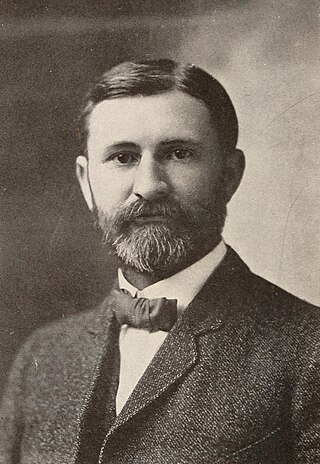
William Jasper Spillman is considered to be the founding father of agricultural economics. In addition, he is notable for being the only American to independently rediscover Mendel's laws of genetics.

John Dryden was a farmer and politician in Ontario, Canada.
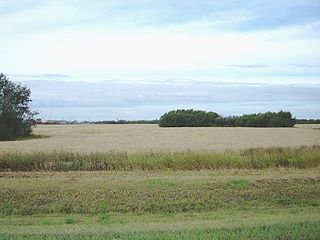
Agriculture in Saskatchewan is the production of various food, feed, or fiber commodities to fulfill domestic and international human and animal sustenance needs. The newest agricultural economy to be developed in renewable biofuel production or agricultural biomass which is marketed as ethanol or biodiesel. Plant cultivation and livestock production have abandoned subsistence agricultural practices in favor of intensive technological farming resulting in cash crops which contribute to the economy of Saskatchewan. The particular commodity produced is dependent upon its particular biogeography or ecozone of Geography of Saskatchewan. Agricultural techniques and activities have evolved over the years. The first nation nomadic hunter-gatherer lifestyle and the early immigrant ox and plow farmer proving up on his quarter section of land in no way resemble the present farmer operating huge amounts of land or livestock with their attendant technological mechanization. Challenges to the future of Saskatchewan agriculture include developing sustainable water management strategies for a cyclical drought prone climate in south western Saskatchewan, updating dryland farming techniques, stabilizing organic definitions or protocols and the decision to grow, or not to grow genetically modified foods. Domestically and internationally, some commodities have faced increased scrutiny from disease and the ensuing marketing issues.
George Rennie (1749–1828) was a Scottish agriculturist.
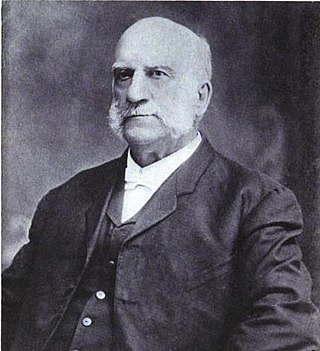
Seaman Asahel Knapp was a Union College graduate, Phi Beta Kappa member, physician, college instructor, and, later, administrator, who took up farming late in life, moving to Iowa to raise general crops and livestock.
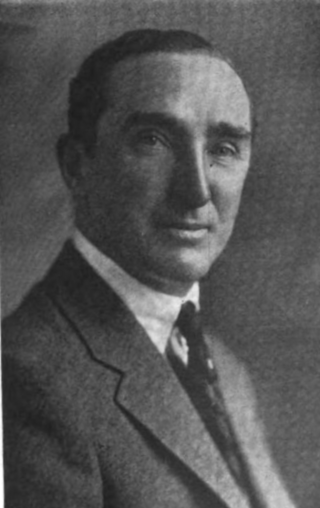
Manning William Doherty was a farmer, businessman and politician serving as Ontario's Minister of Agriculture during the United Farmers of Ontario-Labour government of 1919 to 1923 and as leader of the Progressives in Opposition before leaving provincial politics.
In the United Kingdom, the United States, and Canada, a gentleman farmer is a landowner who has a farm as part of his estate and who farms as a hobby rather than for profit or sustenance.

The Alberta Farmers' Co-operative Elevator Company (AFCEC) was a farmer-owned enterprise that provided grain storage and handling services to farmers in Alberta, Canada between 1913 and 1917, when it was merged with the Manitoba-based Grain Growers' Grain Company (GGGC) to form the United Grain Growers (UGG).

William John Tregillus was a British–Canadian businessman. The son of a miller, he became a well-to-do flour trader in England before emigrating to Calgary, Alberta. There he bred horses and then dairy cattle, became president of the United Farmers of Alberta and the Alberta Farmers' Co-operative Elevator Company, founded a brick factory and a business directory and was active in local politics. He became a millionaire, but lost most of his fortune in the Calgary depression of 1913–14. Worn out, he died of typhoid fever at the age of 56.
Thomas Rennie (1868-1952) was a Canadian businessman and politician.

Major General Robert Rennie was a Canadian businessman and army officer.
John Scott (c.1846–1909) was a Scottish consulting agriculturist, agricultural engineer, and pioneer of motorised farming. He is credited with the invention of the tractor power take-off.















